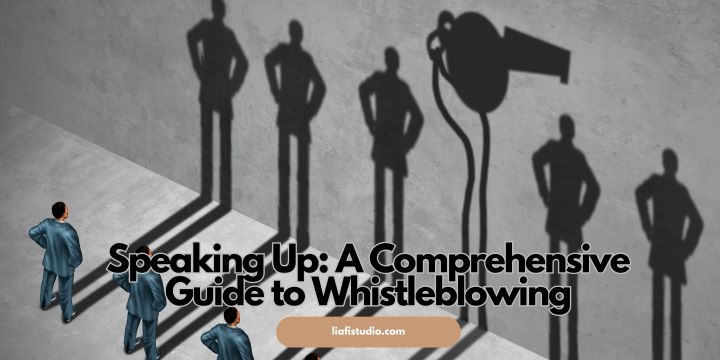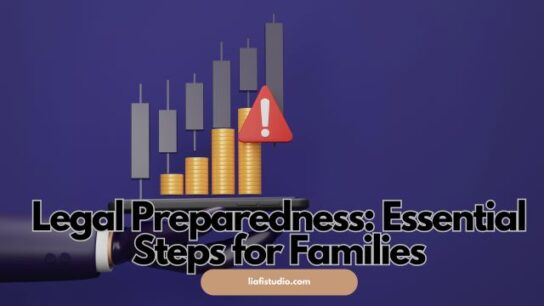Table of Contents
- What Is Whistleblowing?
- Importance of Whistleblowing
- Common Myths About Whistleblowing
- Legal Protections and Repercussions
- Steps to Become a Whistleblower
- Real-world Examples of Whistleblowing
- Resources and Support for Whistleblowers
- Conclusion
What Is Whistleblowing?
Whistleblowing involves reporting unethical or illegal organizational activities to authorities or the public. These activities could range from financial fraud to public health dangers. If you are wondering how to become a whistleblower, it is crucial to understand the steps and precautions you must take. Whistleblowers play a critical role in maintaining ethical standards and protecting public interests. Whistleblowers often face significant risks when exposing concealed misconduct, but their actions are vital in promoting transparency and accountability. For example, the bravery of employees who expose hidden malpractice can lead to reforms and prevent further damage. Their actions also ensure organizations adhere to moral and legal standards and maintain public trust.
Importance of Whistleblowing
The importance of whistleblowing cannot be overstated. It helps uncover hidden wrongdoings and promotes transparency within organizations. Influential cases such as the Enron scandal highlight the tremendous impact that whistleblowers can have in exposing corruption. Many unethical practices might go undetected without whistleblowers, causing financial losses, regulatory penalties, and reputational damage.
Moreover, whistleblowing fosters a culture of honesty and openness. It encourages employees to act ethically and discourages misconduct. This culture of accountability can lead to a more positive and effective workplace environment. When employees know that unethical behavior will not be tolerated, they are more likely to act with integrity, contributing to a more collaborative and trustworthy organizational culture.
Common Myths About Whistleblowing
Many myths surround whistleblowing, such as the belief that whistleblowers are always fired. However, legal protections exist in many jurisdictions to prevent retaliation against those who come forward with valuable information. Another common myth is that only employees can be whistleblowers, but in reality, anyone with insider knowledge, including contractors and former employees, can report misconduct. Understanding the truth behind these myths is essential. Debunking these misconceptions can empower more individuals to step towards whistleblowing when they witness wrongdoing. For example, knowing that there are legal protections against retaliation can give potential whistleblowers confidence to come forward. Education and awareness about whistleblowing’s real risks and protections can lead to more ethical reporting, ultimately contributing to greater organizational transparency and accountability.
Legal Protections and Repercussions
Whistleblowers have various legal protections designed to safeguard their rights. Laws such as the Whistleblower Protection Act in the United States offer substantial safeguards against retaliation, ensuring that individuals who report misconduct are not unjustly penalized. However, repercussions may still exist if the process needs to be followed correctly. Understanding your rights and potential risks is crucial when considering blowing the whistle. While protections are available, the complexity of legal frameworks means that seeking legal advice is often necessary. Legal experts can guide you in navigating these intricacies, ensuring that whistleblowers are adequately protected and that their actions are legally defensible. Being well-informed about legal protections can offer significant peace of mind to those facing the difficult decision of whether to report unethical activities.
Steps to Become a Whistleblower
- Document the Evidence: Gather substantial proof of the wrongdoing. Clear and precise documentation is essential for substantiating claims and increasing the likelihood of a successful report.
- Seek Legal Advice: Consult legal experts to understand your rights and protections. Legal advice can help you navigate the complexities of whistleblowing laws and ensure you follow the correct procedures.
- Report Internally: If possible, report the issue within your organization first. Many organizations have internal mechanisms for addressing misconduct, and using these channels can sometimes resolve issues more quickly and discreetly.
- Go Public or Seek Government Support: If internal reporting is not an option or does not lead to a satisfactory resolution, consider disclosing the information to the public or a government agency. This step should be taken cautiously and, ideally, under legal guidance to avoid potential legal ramifications.
Careful documentation and legal counsel are paramount. These steps can ensure that your actions stand on solid ground and that you are legally protected throughout the process. A systematic whistleblowing approach can enhance your claims’ credibility and provide a more straightforward path to resolution.
Resources and Support for Whistleblowers
Numerous organizations offer resources and support for whistleblowers. Websites such as WRBL provide valuable information on navigating the complexities of whistleblowing. Utilizing these resources can offer guidance and protection throughout the process. These organizations often provide:
- Legal assistance
- Advice on best practices
- Emotional support for those going through the challenging experience of whistleblowing
Reaching out to these support systems can provide legal, emotional, and psychological support. Engaging with these resources can make the challenging path of whistleblowing more manageable. Knowing that a network of support can provide comfort and strength, helping whistleblowers stay the course and ensure that their efforts lead to meaningful change.
Conclusion
Whistleblowing is a powerful tool for ensuring transparency and accountability in various sectors. Understanding the steps and legal protections available can empower individuals to come forward and make a significant difference. Remember, seeking legal counsel and utilizing available resources is essential to navigate this courageous path effectively. By following the steps outlined above and taking advantage of legal protections and support resources, potential whistleblowers can act confidently and ensure that their efforts lead to positive outcomes for themselves and society. Whistleblowing is not without its challenges, but when done correctly, it can significantly improve ethical practices and public trust.







